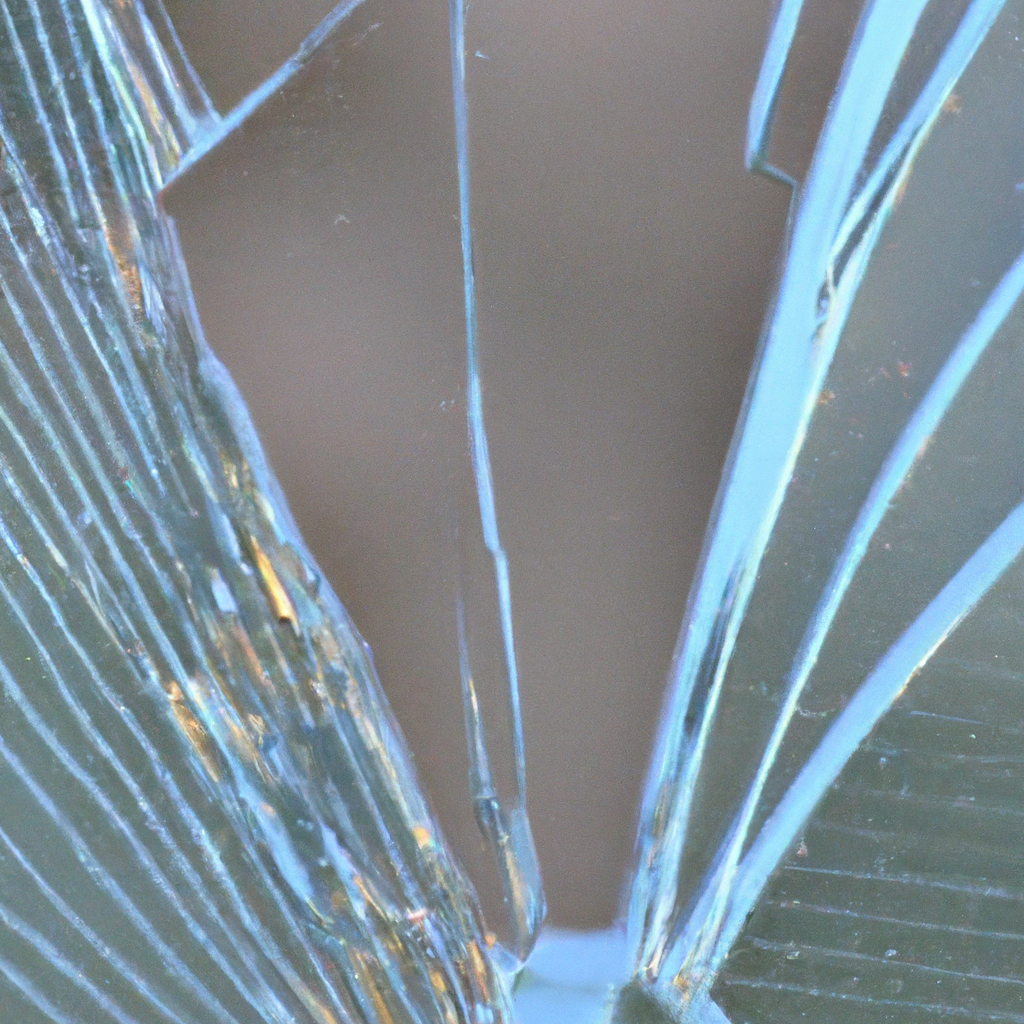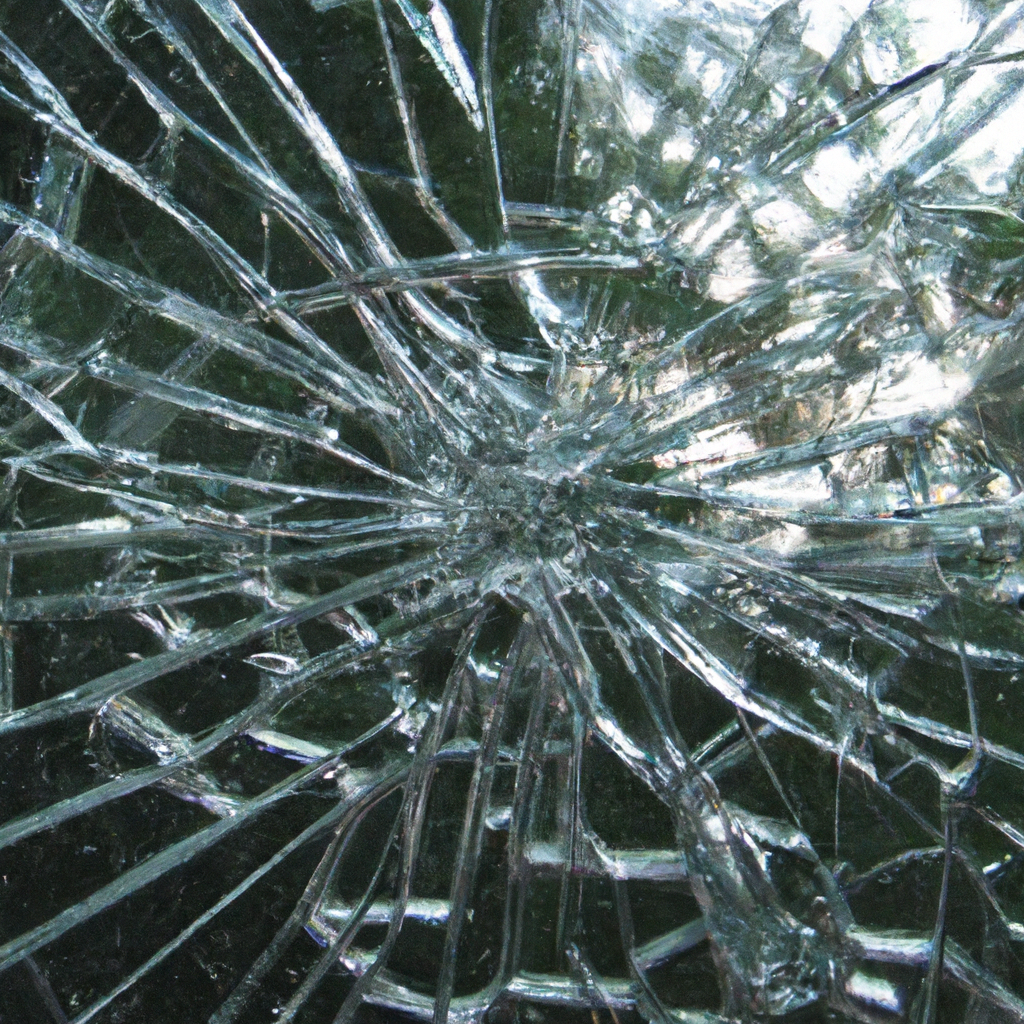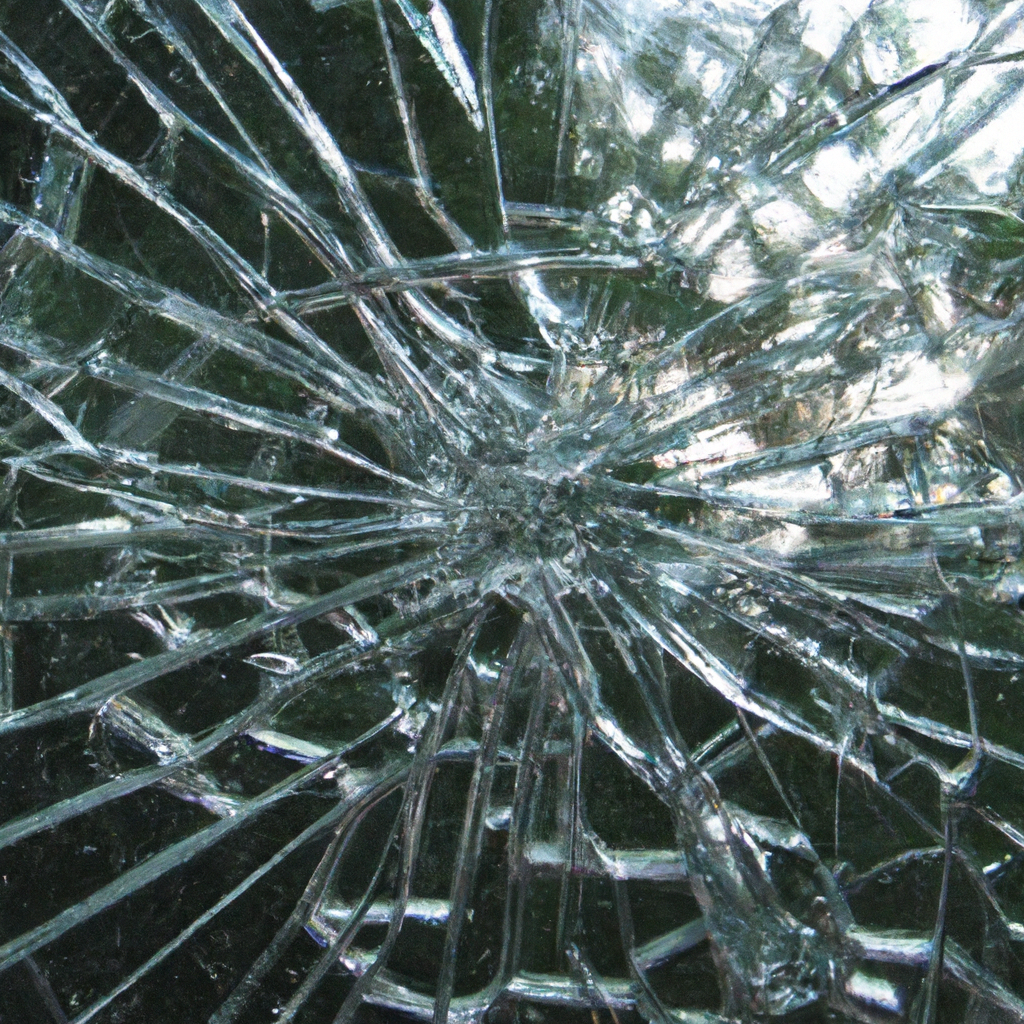If you live in an area prone to hurricanes or severe storms, you’ve probably wondered whether impact windows can truly protect your home from the dangers of flying debris. Well, the answer is a resounding yes. Impact windows are specifically designed and tested to withstand the impact of flying debris, providing a reliable barrier of protection for your home and peace of mind for you. Whether it’s heavy branches, rocks, or even projectiles, impact windows are built to withstand the forces of nature and keep your home safe and secure. So, say goodbye to worrying about shattered glass and hello to the safety and security of impact windows.

Understanding Impact Windows
What are Impact Windows?
Impact windows, also known as hurricane windows or storm windows, are specially designed windows that are constructed to withstand strong impacts from flying debris during severe weather events such as hurricanes, tornadoes, or high winds. These windows are made with multiple layers of laminated glass and a reinforced frame, providing superior strength and durability compared to standard windows.
How do Impact Windows Work?
The key feature of impact windows is their ability to resist the impact of flying debris. They achieve this through a combination of factors:
-
Laminated Glass: Impact windows are made with two or more layers of glass that are bonded together with a durable interlayer. This interlayer is typically made of polyvinyl butyral (PVB), which acts as a shield, preventing the glass from shattering upon impact. Even if the outer layer is broken, the interlayer holds the glass together, reducing the risk of injury or property damage.
-
Reinforced Frame: The frame of an impact window is reinforced with materials such as aluminum, steel, or vinyl to add strength and stability. This helps the window withstand the pressure and impact caused by flying debris and strong winds.
-
Seal Protection: Impact windows are also designed with robust sealing systems that offer a tight seal when closed. This prevents water, wind, and debris from entering your home, providing added protection during severe weather conditions.
Importance of Protecting against Flying Debris
Risks and Dangers of Flying Debris
During severe weather events, flying debris poses a significant threat to both life and property. High winds can hurl objects at extremely high speeds, turning them into dangerous projectiles. These flying projectiles can break through standard windows, causing extensive damage to your home’s interior, and even leading to personal injury or loss of life.
Preventive Measures for Protecting against Flying Debris
To mitigate the risks associated with flying debris, it is crucial to take preventive measures. Installing impact windows is one of the most effective ways to protect your home and loved ones. Additionally, some other preventive measures include:
-
Clearing Surrounding Areas: Remove any loose objects, such as outdoor furniture or potted plants, from around your home. These items can become airborne and cause damage during severe storms.
-
Reinforcing Doors: Install impact-resistant doors or reinforce existing doors with barricades or bracing systems to prevent them from being blown open by strong winds.
-
Securing Garage Doors: Strengthen your garage door with a hurricane retrofit kit or brace to withstand the force of the wind, preventing it from collapsing inward.
-
Creating a Safe Room: Designate a safe room in your home, preferably an interior room without windows, where you and your family can take shelter during severe weather events.
Effectiveness of Impact Windows against Flying Debris
Standards and Testing for Impact Windows
To ensure their effectiveness, impact windows undergo rigorous testing and must meet specific standards. The two primary standards for impact windows in the United States are the American Society for Testing and Materials (ASTM) standards and the Miami-Dade County protocols.
The ASTM standards include impact resistance tests where the windows are subjected to the impact of a large missile, simulating flying debris. These tests evaluate the window’s ability to withstand the impact without penetration and maintain structural integrity.
The Miami-Dade County protocols are considered even more stringent, as they require impact windows to withstand wind speeds of up to 180 mph and repeated impacts from a nine-pound 2×4 wooden board traveling at 34 mph. If a window meets these protocols, it is considered highly reliable in protecting against flying debris.
Impact Resistance of Various Types of Glass
The impact resistance of impact windows largely depends on the type of glass used. There are different options available, ranging from standard laminated glass to advanced materials such as tempered glass and polycarbonate.
Standard laminated glass, consisting of two layers of glass with a PVB interlayer, provides excellent impact resistance and is commonly used in impact windows. However, for enhanced protection, some impact windows use tempered glass, which is up to four times stronger than regular glass. Polycarbonate, a lightweight and impact-resistant material, is also gaining popularity due to its exceptional strength and durability.
Ultimately, the choice of glass depends on factors such as the specific requirements of your area, your budget, and your desired level of protection.

Factors Affecting Protective Capability of Impact Windows
Quality and Installation
The protective capability of impact windows depends greatly on the quality of the windows themselves and their proper installation. It is essential to choose impact windows from a reputable manufacturer that meets industry standards for quality and durability.
Additionally, the installation process plays a crucial role in ensuring the windows provide the intended protection. Improper installation can compromise the window’s ability to withstand impacts and prevent debris from penetrating your home. Hiring a professional installer with experience in impact window installation is highly recommended.
Size and Thickness of Glass
The size and thickness of the glass used in impact windows also affect their protective capability. Larger windows require thicker and stronger glass to withstand the impact of flying debris.
In general, impact windows with thicker glass provide better protection against flying debris. Thicker glass is more resistant to shattering and penetration, ensuring that even under extreme conditions, debris is less likely to breach the window and enter your home.
Frame Strength and Material
The strength and material of the window frame contribute significantly to the overall protective capability of impact windows. A sturdy and durable frame provides better resistance against powerful impacts and helps maintain the integrity of the window system.
Different materials, such as aluminum, steel, or vinyl, offer varying levels of strength and durability. Aluminum frames are commonly used due to their lightweight nature, resistance to corrosion, and ease of maintenance. Steel frames provide superior strength but may require more maintenance to prevent rust. Vinyl frames are known for their durability, energy efficiency, and low maintenance requirements.
Choosing the right combination of frame material and strength is crucial to ensure your impact windows effectively protect against flying debris.
Advantages of Impact Windows in Protecting against Flying Debris
Enhanced Safety and Security
One of the most significant advantages of impact windows is their ability to enhance the safety and security of your home. These windows provide an effective barrier against flying debris, preventing it from breaching your home and causing damage or injury to the occupants.
Impact windows also act as a deterrent to burglars and intruders, as they are highly resistant to forced entry. They offer an added layer of protection, helping you feel more secure in your home.
Noise Reduction and Energy Efficiency
In addition to their protective capabilities, impact windows also offer several other advantages. The multiple layers of glass and the specialized interlayer in impact windows help reduce external noise, creating a quieter, more peaceful living environment.
Impact windows also contribute to energy efficiency. Their tight seals prevent air leakage, reducing drafts and the load on heating and cooling systems. This can result in lower energy bills and a more comfortable indoor environment throughout the year.
Insurance Benefits
Installing impact windows can often lead to insurance benefits. Insurance companies recognize the increased protection impact windows offer against severe weather events and flying debris. As a result, many insurance providers offer premium discounts or incentives for homeowners who install impact windows.
By upgrading to impact windows, you not only protect your property but also potentially save money on your insurance premiums.
Limitations of Impact Windows in Protecting against Flying Debris
Extreme Conditions and Limiting Factors
While impact windows provide significant protection against flying debris, it is essential to recognize their limitations. In extreme weather conditions, such as a category 5 hurricane or a tornado, even the most robust impact windows may not be able to withstand extremely powerful and sustained impacts.
Additionally, impact windows may be limited by factors such as the structural integrity of the surrounding walls or the roof. If these elements are compromised, the overall protective capability of the impact windows may be reduced.
Proper Maintenance and Inspection
To ensure the continued effectiveness of impact windows, proper maintenance and regular inspections are necessary. Over time, seals may deteriorate, compromising the window’s ability to provide a tight seal against water, wind, and debris.
Regular inspections should include checking for any signs of damage, such as cracks or chips in the glass or frame. Any repairs or replacements should be promptly addressed to maintain the integrity of the impact windows and ensure they continue to provide reliable protection.
Comparing Impact Windows with Other Protective Measures
Storm Shutters
Storm shutters are another popular option for protecting windows during severe weather. These shutters are installed over the existing windows and can be manually operated or automatic. While they provide effective protection against flying debris, storm shutters have some drawbacks compared to impact windows.
Firstly, storm shutters require manual installation and removal, which can be time-consuming and physically demanding during emergencies. They also obstruct natural light and may restrict visibility when closed.
Furthermore, storm shutters are susceptible to damage, especially if they are not properly maintained or if they are hit by large, fast-flying debris. Impact windows, on the other hand, offer continuous protection without the need for manual handling.
Plywood Boarding
Plywood boarding is a common and affordable temporary solution to protect windows during severe weather events. Plywood sheets are cut to size and secured to the window frames using fasteners or brackets. While plywood boarding can provide some protection against flying debris, it has several limitations.
Plywood is not as strong as impact-resistant glass and can be easily penetrated by large or fast-moving debris. It also requires advanced preparation before a storm, including storing and cutting plywood sheets to fit each window.
In terms of convenience and effectiveness, impact windows offer a superior and more reliable solution when compared to plywood boarding.
Window Film
Window film is a thin polyester coating that can be applied to the interior surface of existing windows. The film provides some protection against broken glass by holding shattered pieces together, reducing the risk of injury. However, window film alone is not sufficient to protect against flying debris during severe weather events.
While window film can offer an additional layer of protection, it is recommended to combine it with impact windows for optimal safety and security. Impact windows provide the necessary structural integrity and impact resistance required to effectively protect against flying debris.
Cost Considerations of Installing Impact Windows
Upfront Costs versus Long-Term Savings
Installing impact windows involves upfront costs that can vary depending on factors such as the size of your home, the number of windows, and the specific requirements of your area. However, it is important to consider the long-term savings associated with impact windows.
Impact windows offer energy efficiency benefits, reducing heating and cooling costs over time. They can also potentially result in insurance premium discounts, providing additional savings.
Furthermore, impact windows eliminate the need for temporary protective measures such as storm shutters or plywood boarding, which can incur recurring costs for materials, installation, and maintenance.
Factors Influencing Installation Costs
Several factors influence the installation costs of impact windows. These include the size and complexity of the window openings, the type of glass and frame materials chosen, any necessary structural modifications, and the labor costs in your area.
It is recommended to obtain quotes from multiple reputable contractors to compare prices and ensure you are receiving a fair and competitive offer. Additionally, inquire about warranties, maintenance services, and any financing options that may be available to help manage the upfront costs.
Choosing the Right Impact Windows
Determining Your Needs and Requirements
Choosing the right impact windows for your home requires considering your specific needs and requirements. Start by evaluating the potential risks in your area, such as the frequency and intensity of severe weather events. This will help determine the level of protection your windows should provide.
Consider factors such as the size of your home, the number of windows, and your budget. Assess whether additional features, such as noise reduction or energy efficiency, are important to you.
Consult with a professional installer or manufacturer who can guide you through the selection process and provide recommendations based on your specific circumstances.
Selecting a Reputable Manufacturer or Supplier
To ensure the quality and reliability of your impact windows, it is crucial to select a reputable manufacturer or supplier. Look for manufacturers that have a proven track record in the industry and have their products tested and certified by recognized organizations.
Read customer reviews and testimonials to gain insight into the experiences of other homeowners. Ask for references and contact previous customers to assess their satisfaction with the product and installation process.
Remember, the manufacturer’s reputation and the quality of their impact windows are crucial factors in ensuring the effectiveness and durability of your investment.
Conclusion
Impact windows provide a formidable line of defense against flying debris during severe weather events. Their ability to withstand powerful impacts and prevent penetration makes them an essential addition to any home located in hurricane-prone regions or areas prone to high winds.
By investing in impact windows, you enhance the safety and security of your home, reduce noise levels, improve energy efficiency, and may even receive insurance benefits. While impact windows have their limitations and installation costs, they offer long-term savings, convenience, and peace of mind that can outweigh the initial expenses.
When choosing impact windows, carefully consider your needs, evaluate the quality and reputation of the manufacturer, and consult with professionals to ensure the windows selected meet all your requirements. By doing so, you can rest assured knowing that your home and loved ones are protected against the hazards of flying debris during severe weather.
